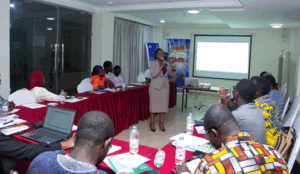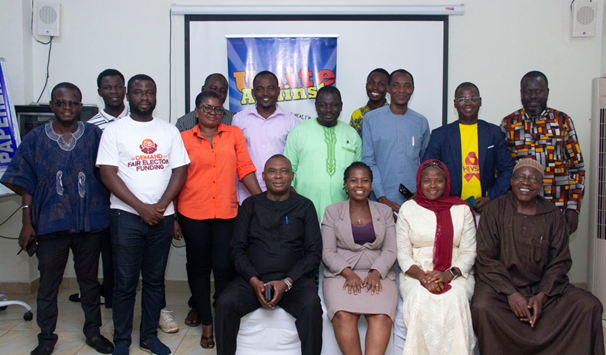By Samuel SAM
Africa loses an estimated US$88.6billion each year to illicit financial flows, undermining foreign direct investment (FDI), development assistance and national efforts to fund economic transformation, according to a recent report by the Financial Intelligence Centre (FIC).
The loss, which stems from capital flight, money laundering, tax evasion and proceeds of crime – including corruption, bribery and illegal mining – continues to deprive the continent of critical resources needed for infrastructure, education, healthcare and long-term development.
In Ghana, FIC recorded 42 money laundering (ML) convictions in 2023. Fraud-related offences accounted for the highest number with 22 convictions. This was followed by forgery-related offences (17 convictions) and drug trafficking-related offences (3 convictions).
Speaking at a media and civil society sensitisation engagement in Tamale, Northern Region, FIC representative Madam Yvette Anthea Owusu stressed the impact of illicit financial flows on national development.
“These acts make it difficult for countries to access the funds required to execute development projects for economic growth,” she said.
The forum, themed ‘Building political will and public support for asset recovery in Ghana’, was organised by the Ghana Anti-Corruption Coalition (GACC) with support from the Inter-Governmental Action Group against Money Laundering in West Africa (GIABA). The three-month initiative, covering five regions, aims to promote understanding of asset recovery processes, legal frameworks and institutional mandates in the fight against corruption.
Madam Owusu noted that while Ghana has made progress in asset recovery, challenges remain. She attributed recent gains to stronger collaboration between FIC, investigative bodies, revenue authorities, security agencies and foreign counterparts.
“Ghana is gradually making progress in the asset recovery regime despite existing challenges, owing to stringent measures put in place to curb money laundering,” she said.
Referencing Article 13 of the United Nations Convention Against Corruption (UNCAC), she highlighted the role of civil society and media in preventing and combatting corruption. The article calls on states to promote active participation by non-governmental organisations, community groups and the public in anti-corruption efforts.
Ghana, she added, continues to engage in mutual legal assistance with other jurisdictions to investigate and prosecute transnational crimes.

She encouraged media houses to act as watchdogs, working in partnership with civil society organisations (CSOs) to educate the public and trace illicit assets. “Investigative journalism plays a critical role in the fight against corruption,” she added.
Benjamin Ndego, a representative of the Economic and Organised Crime Office (EOCO), stressed the importance of building public trust and transparency in asset recovery efforts. He noted that EOCO is intensifying its use of legal tools, including plea bargaining, to improve outcomes and conserve resources.
He also appealed for government, civil society and development partners to provide EOCO with increased funding, legal support and public awareness backing to enhance accountability.
Commenting on the rationale behind the project, Solomon Nyankah of GACC explained that Ghana continues to lose significant public resources to illicit activities.
“We initiated this project because we recognised a need to educate the public, especially media and CSOs, about the asset recovery regime and importance of their roles in informing the wider population,” he said.
“We’re focusing on media because they have the power and voice to reach a broad audience with knowledge on asset recovery and its effective management,” Mr. Nyankah added.










